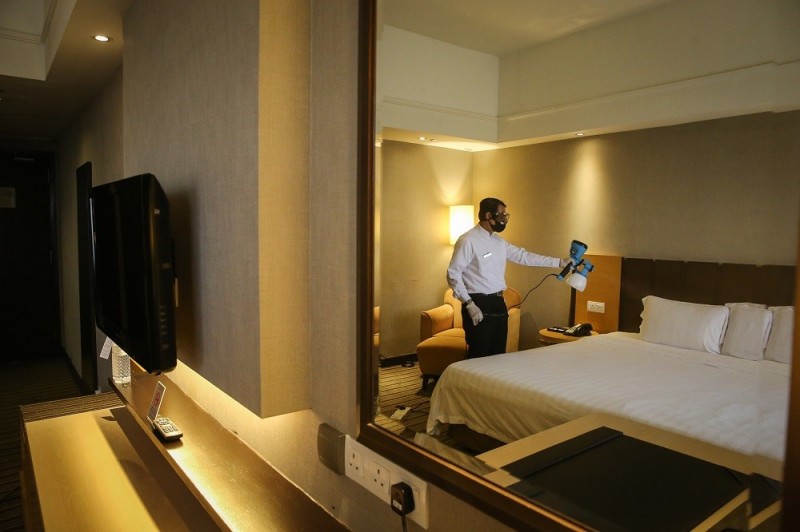
Image credit: Malay Mail
KUALA LUMPUR: With bookings coming in from foreign travellers following the reopening of the country's borders, hotels have to maintain top-notch services for guests while dealing with a severe manpower shortage.
Malaysia Budget and Business Hotel Association (MyBHA) deputy president Dr Sri Ganesh Michiel said most hotel operators, from high-rated hotels to budget hotels, were facing the same problem.
"Of course, when people see travel activities resume, they immediately think that hoteliers' businesses are picking up.
"They are, but let's not forget that the existing competition between hoteliers and short-term rental accommodation such as Airbnb has become more intense.
"This brings up the question of how can we continue to generate income or even retain our employees? This has been highlighted for many years, but there's no solution till today."
He said apart from struggling to generate income, hotels also had to provide top quality service.
"We need money to hire employees and train them.
"This issue of manpower shortage creates a ripple effect that is slowly killing the industry if it goes un-addressed."
Ganesh said hotels might have to increase their prices by 60 to 70 per cent soon if there was no assistance from the government.
"We also want to take care of our employees and nobody wants to push their staff until they're burnt out.
"These days, everyone is looking for job security. If hotels are not generating much income, how can they afford to hire and retain their people? There's no other way but to increase the price.
"If no action is taken now, it will lead to more hotel closures in the future as there's a lot of pressure on hotels to maintain operations with minimum manpower during peak seasons.
"We urge the authorities to respond with help.
"Don't come up with nonsensical policies; help us on the ground first," he said.
Meanwhile, Anita Selvi, director of human resources at Ascott International Management (M) Sdn Bhd, agreed with Ganesh's call for the Human Resources Ministry to approve permits for foreign workers and allow them to return to the hospitality industry.
She said the industry could previously fall back on foreign workers if there was a manpower shortage.
This, she added, had changed drastically as there are none available.
She said the group had seen a 50 per cent reduction in manpower from the pre-Covid-19 pandemic period until now.
"This is not a national phenomenon as it is also happening globally. Not many want to work in the hospitality industry again.
"We (Ascott) are slightly fortunate because most of our properties are serviced residences, which means we do not need that much manpower compared to hotels.
"But after the pandemic, we, too, have been seriously hit.
"The last two years have really made people think a lot about what they wanted to do with their life, so I think there have been shifts in thought relating to work," she said.
Ascott Malaysia country general manager, Mondi Mecja, said the group was seeing around a 60 to 70 per cent increase in occupancy at some of its properties since May this year.
"In some areas, we've seen an increase of 80 to 90 per cent.
"This is not only contributed by domestic travellers but also those from the Southeast Asia countries and Japan.
"But the lack of manpower has pushed us to have everybody's hands on deck, especially on weekends and peak seasons."
He cited Ascott Kuala Lumpur as an example, which used to operate on a headcount of 99.
It is currently operating with 62 staff.
"So no matter if you're the head of department or manager, everybody needs to be on the floor to overturn the rooms.
"Some have to work extra hours to make sure our customers get only the best quality during their stay," he said.
Source: https://www.nst.com.my/news/nation/2022/06/802871/hotels-may-hike-rates-if-manpower-shortage-continues

